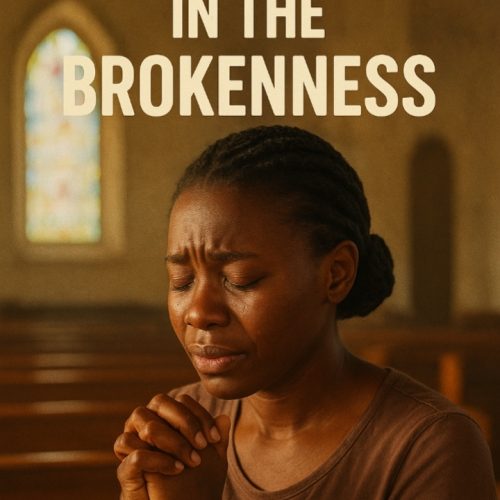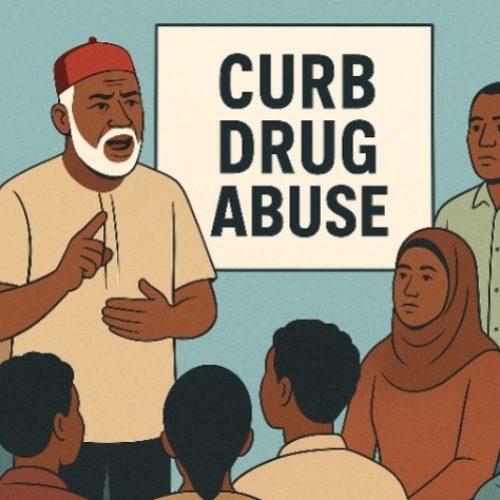BROKEN ROADS, BROKEN LIVES: HOW DRUG ABUSE FUELS ROAD ACCIDENTS IN NIGERIA
BROKEN ROADS, BROKEN LIVES: HOW DRUG ABUSE FUELS ROAD ACCIDENTS IN NIGERIA
On a cool evening in Abuja, Chioma clutched her mother’s hand tightly as they crossed the busy junction near Area one
The traffic was its usual chaos, taxis screeching, buses swerving, keke riders competing for space.
Suddenly, a loud crash silenced the noise. A car had veered off the road, hitting a bike and flinging its rider several feet away.
By the time the crowd gathered, it was too late. The rider’s helmet lay shattered on the tarmac, his groceries spilled in the gutter.
The driver, barely coherent, staggered out of his vehicle. His breath reeked of alcohol and cannabis.
For Chioma, that night would mark the beginning of nightmares, flashing headlights, screeching brakes, and the haunting image of a stranger’s lifeless body on the road.
This is not an isolated story. Across Nigeria, families like Chioma’s are left scarred, not just by reckless driving, but by a darker epidemic, drug abuse behind the wheel.
The Hidden Epidemic on Our Roads
When people think of road accidents, the common causes that come to mind are bad roads, faulty vehicles, or over-speeding.
Yet, a silent factor fuels countless tragedies: drivers under the influence of drugs and alcohol.
The Federal Road Safety Corps (FRSC) has repeatedly raised alarms that substances like tramadol, codeine, cannabis, and strong spirits are increasingly found in drivers involved in fatal crashes.
Many commercial drivers, especially long-distance ones, rely on these substances to “stay awake” during overnight journeys.
What begins as a desperate attempt to fight fatigue often ends in impaired judgement, slower reaction times, and catastrophic accidents.
Behind every statistic is a story, a family torn apart, a child orphaned, a breadwinner gone too soon.
Musa’s Story: A Journey Cut Short
Musa was a 38-year-old father of three, a commercial driver who plied the Abuja, Kaduna route. Known for his humour and storytelling, Musa was popular with passengers who often called him “Captain Musa.”
But beneath his jovial exterior was a dangerous secret.
Like many drivers at motor parks, Musa took tramadol and sometimes smoked weed before trips. “It helps me stay sharp,” he would boast to friends.
One rainy evening, as Musa sped towards Kaduna, his reflexes dulled by drugs, he swerved too late to avoid a pothole.
The bus somersaulted three times before landing in the bush. Seven passengers, including a young bride travelling to meet her in-laws, died on the spot.
Musa survived with broken ribs, only to face the haunting truth in hospital: his decision to abuse drugs had destroyed seven families and his own livelihood.
The Ripple Effect of One Choice
Drug-related accidents don’t just claim lives—they devastate entire communities.
Children lose parents.
Families sink into poverty when breadwinners are killed.
Survivors live with life-changing disabilities, unable to work again.
Communities grieve, asking why preventable tragedies continue.
Beyond the physical, there’s the psychological toll. Survivors often battle trauma, depression, and guilt, while families of victims are left with unanswered questions and unhealed wounds.
Why Drivers Turn to Drugs
To address the problem, we must ask: Why are so many drivers hooked?
Economic Pressure: Long hours on poor roads for little pay drive many into substance use for endurance.
Ignorance: Some genuinely believe drugs make them better drivers, not realising the opposite is true.
Peer Pressure at Parks: At many garages, drug peddlers sell openly, making access easy.
Weak Enforcement: Random drug tests are rare, allowing offenders to continue unchecked.
A Call to Action
Drug abuse on Nigerian roads is not just a driver’s problem, it is a national emergency. We cannot afford to remain silent while more lives are lost daily.
Government and FRSC must enforce strict random drug and alcohol tests for drivers, especially commercial transport workers.
Unions and transport companies should make welfare a priority, reducing the pressure that pushes drivers to drugs.
Communities and families must speak openly about the dangers, breaking the silence around drug use.
Civil society and NGOs, like Balm for the Bruised Foundation, must continue to tell these stories, educate the public, and push for change.
Healing the Broken
At Balm for the Bruised Foundation, we believe every accident caused by drugs is preventable. Every death avoided is a family saved from grief. Every driver who gets help for drug addiction is a community protected.
We owe it to Musa’s children. We owe it to Chioma and every child who witnesses such horrors. Most importantly, we owe it to ourselves as a society striving for safer roads and healthier lives.
Your Voice Matters
Have you or your family been affected by an accident caused by drug or alcohol abuse? Share your story with us.
Together, we can push for safer policies, stronger enforcement, and a Nigeria where no journey ends in tragedy because of drugs.
Join the conversation. Leave a comment, share this story, and help us raise awareness.
About author
You might also like
IWD: Our Contribution To Youth Engagement
Our founder, Princess-Ekwi Ajide in Abuja, tasked youths to become innovative so as to be agents of positive changes in their communities. Watch the videos
FINDING GRACE IN THE BROKENNESS: A JOURNEY OF FAITH AND RECOVERY
FINDING GRACE IN THE BROKENNESS: A JOURNEY OF FAITH AND RECOVERY (A Balm for the Bruised Foundation True-Life Story) When Chinyere first walked into the small church at the edge
THE NIGHT THE DRUMS FELL SILENT
THE NIGHT THE DRUMS FELL SILENT It was a small satellite community in the Federal Capital Territory, Abuja, by day, the streets rang with children’s laughter, and by night, with



0 Comments
No Comments Yet!
You can be first to comment this post!